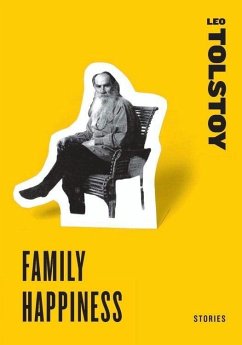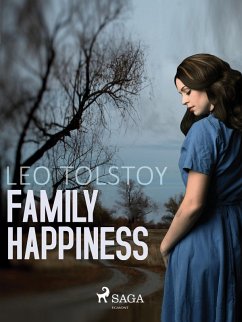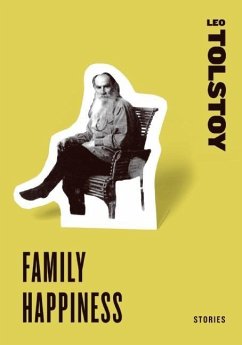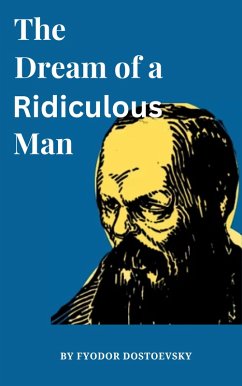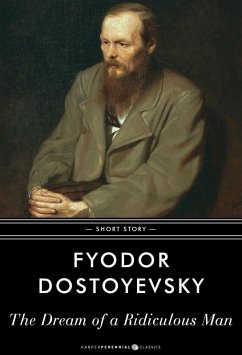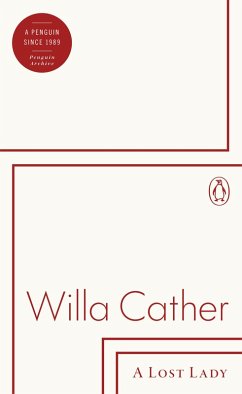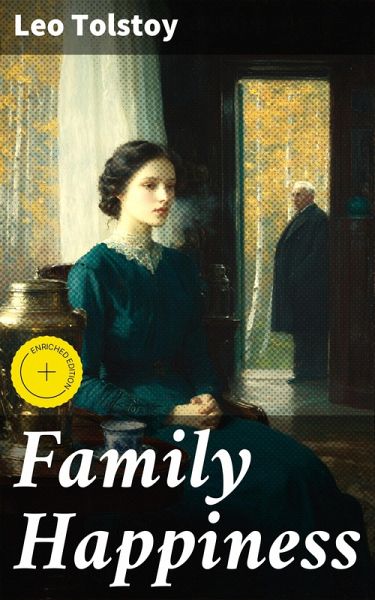
Family Happiness (eBook, ePUB)
Enriched edition. A Journey of Love and Fulfillment in 19th-Century Russia
Kommentar: Dalesworth, Keaton / Redaktion: Good Press / Übersetzer: Maude, Louise; Maude, Aylmer

PAYBACK Punkte
0 °P sammeln!
In "Family Happiness," Leo Tolstoy explores the intricate dynamics of love, marriage, and personal fulfillment through the lens of a young couple's relationship. Written in a lyrical prose style that showcases Tolstoy's keen psychological insight, the novella delves into the disillusionment often experienced in domestic life, juxtaposing the initial euphoria of love with the ensuing challenges of everyday existence. Set against the backdrop of 19th-century Russian society, the narrative reflects the broader themes of social conventions and individual desire, exemplifying how personal happiness...
In "Family Happiness," Leo Tolstoy explores the intricate dynamics of love, marriage, and personal fulfillment through the lens of a young couple's relationship. Written in a lyrical prose style that showcases Tolstoy's keen psychological insight, the novella delves into the disillusionment often experienced in domestic life, juxtaposing the initial euphoria of love with the ensuing challenges of everyday existence. Set against the backdrop of 19th-century Russian society, the narrative reflects the broader themes of social conventions and individual desire, exemplifying how personal happiness can conflict with societal expectations. Tolstoy, a literary giant and philosopher, draws upon his own experiences and moral contemplations to imbue the protagonist's journey with authenticity and depth. His interest in the complexities of human relationships and moral philosophy resonates throughout the work, providing a rich context for understanding the universal struggles within marital life. Tolstoy's profound reflections on happiness, duty, and the weight of societal norms stem from his own grappling with these issues in his personal life. "Family Happiness" is highly recommended for those intrigued by the complexities of love and marriage, as well as for readers interested in the philosophical underpinnings of Tolstoy's thought. This poignant exploration invites readers to reflect on their own relationships and the definition of happiness, making it a timeless piece that resonates well beyond its historical context. In this enriched edition, we have carefully created added value for your reading experience: - A succinct Introduction situates the work's timeless appeal and themes. - The Synopsis outlines the central plot, highlighting key developments without spoiling critical twists. - A detailed Historical Context immerses you in the era's events and influences that shaped the writing. - An Author Biography reveals milestones in the author's life, illuminating the personal insights behind the text. - A thorough Analysis dissects symbols, motifs, and character arcs to unearth underlying meanings. - Reflection questions prompt you to engage personally with the work's messages, connecting them to modern life. - Hand-picked Memorable Quotes shine a spotlight on moments of literary brilliance. - Interactive footnotes clarify unusual references, historical allusions, and archaic phrases for an effortless, more informed read.
Dieser Download kann aus rechtlichen Gründen nur mit Rechnungsadresse in A, B, BG, CY, CZ, D, DK, EW, E, FIN, F, GR, H, IRL, I, LT, L, LR, M, NL, PL, P, R, S, SLO, SK ausgeliefert werden.






